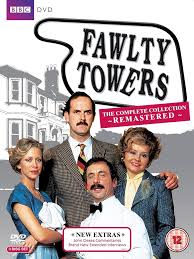The Enduring Legacy of Fawlty Towers

Introduction
Fawlty Towers, the iconic British sitcom created by John Cleese and Connie Booth, has cemented its place in the annals of television history since its debut in 1975. Set in a dysfunctional hotel run by the rude and often incompetent Basil Fawlty, the series is renowned for its sharp wit, memorable characters, and timeless humour. This article explores the importance of Fawlty Towers and its continued relevance in today’s entertainment landscape.
The Plot and Characters
Fawlty Towers revolves around the misadventures of Basil Fawlty, played by Cleese, and his wife Sybil, along with a cast of characters that include the hapless waiter Manuel and the sensible chambermaid Polly. The show’s unique blend of farce and character-driven comedy set it apart from other sitcoms of its time. With only two series and a total of 12 episodes, it is remarkable that Fawlty Towers has had such a lasting impact, often regarded as one of the greatest sitcoms in British television history.
Current Relevance
In recent years, there has been renewed interest in Fawlty Towers, with discussions around a potential revival circulating in media outlets. In October 2023, Cleese himself hinted at the possibility of returning to the character of Basil Fawlty in a new series, prompting a mix of excitement and skepticism among fans. The series touches on themes that remain relevant today, such as service industry challenges, cultural clashes, and the absurdity of human behaviour. Its humour transcends generations, making it appealing to both new audiences and longtime fans alike.
Cultural Impact
Fawlty Towers has influenced countless comedy series worldwide and has been referenced in various forms of media. Its impact can be seen in the work of other British comedies and even international productions, with its distinctive style and character archetypes becoming a template for sitcoms that followed. The show’s catchphrases and scenes have entered popular culture, further solidifying its status as a cultural touchstone.
Conclusion
As Fawlty Towers continues to be celebrated and revisited by audiences, its legacy remains strong. The potential for a revival opens the door for a new generation to experience the comedic genius of Cleese and Booth. Whether through classic reruns or a possible new series, Fawlty Towers stands as a testament to the timelessness of great comedy, reminding us that the art of laughter is as relevant now as it was over four decades ago.
